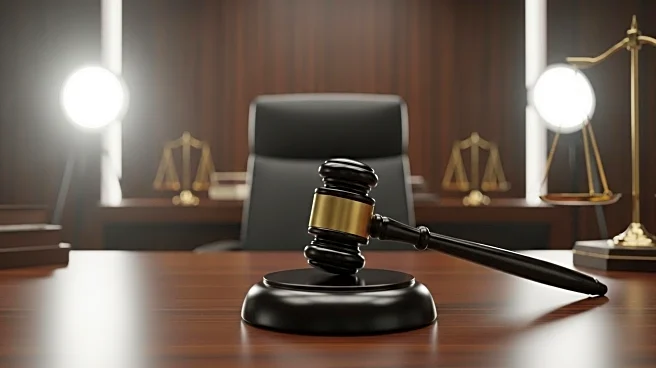What's Happening?
Kris Jenner and Kim Kardashian have initiated legal proceedings against R&B singer Ray J, filing a defamation lawsuit on October 1, 2025. The lawsuit was prompted by Ray J's public claims during a livestream on September 24, alleging that Jenner and Kardashian were under a federal RICO investigation. The complaint, filed in Los Angeles Superior Court, asserts that Ray J's statements were presented as factual and have caused reputational harm to the plaintiffs. This marks the first defamation suit filed by either Jenner or Kardashian, signaling a strategic shift in their approach to handling public allegations.
Why It's Important?
The lawsuit highlights the increasing legal risks associated with viral social media claims, particularly for high-profile individuals. As public figures, Jenner and Kardashian's decision to pursue legal action underscores the potential consequences of unverified statements made online. This case could set a precedent for how celebrities and public figures respond to defamatory claims in the digital age, potentially leading to more cautious behavior from influencers and media outlets when sharing unverified information. The outcome of this lawsuit may influence how defamation is approached in the context of social media and livestreams.
What's Next?
The lawsuit will proceed in the Los Angeles Superior Court, where the plaintiffs will need to demonstrate that Ray J's statements were false and caused reputational damage. Legal experts and media outlets are likely to closely monitor the case, as it could impact future defamation suits involving social media claims. The case may also prompt discussions about the responsibilities of influencers and media platforms in verifying information before dissemination. Depending on the court's decision, there could be implications for how defamation is legally defined in the context of livestreams and viral content.
Beyond the Headlines
This lawsuit raises questions about the balance between free speech and the protection of reputations in the digital age. It highlights the ethical considerations of sharing potentially harmful information without verification and the role of social media platforms in moderating content. The case may also influence public discourse on the accountability of individuals who use their platforms to make serious allegations, potentially leading to more stringent legal standards for defamation claims.








